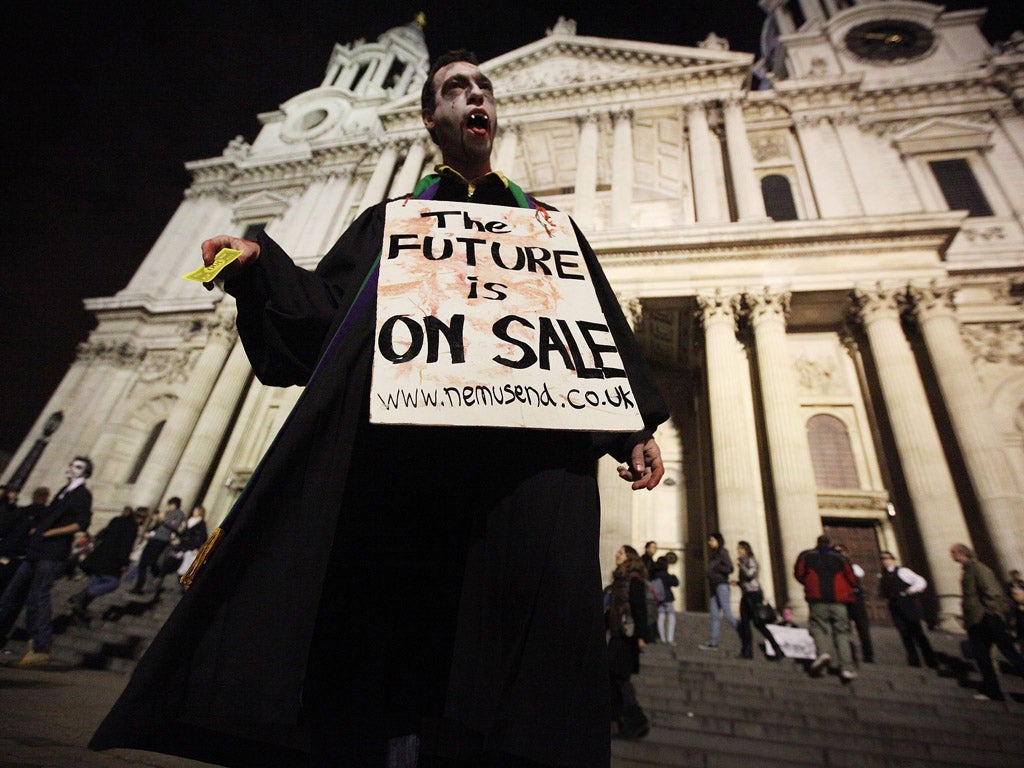Capitalism is the Crisis: why the need to envision and create an alternative is more urgent than ever
A system premised upon competition, ceaseless growth and environmental exploitation is illogical and ultimately suicidal. Workers everywhere deserve better

One would be hard pressed to escape the current sea of global unrest. There is growing dissent in the United Kingdom, and outright revolt is taking place in Spain, Portugal, Greece and elsewhere. Leading up to these waves of resistance were the global “occupy” movements that drew inspiration from the revolutionary intent of the “Arab Spring.”
The origins of these struggles are fairly clear. The largest crisis of capitalism since the Great Depression continues today. States bailed out deregulated banks using trillions in public funds, and now people are left to suffer.
A Matter of Survival
Some teachers in Greece bring toilet paper from their homes because schools can no longer afford basic supplies. People are struggling for basic human dignity. And for many in the world, resistance is not a moral imperative. It is a matter of survival. Chronic hunger and poverty now affect one sixth of all humanity, according to estimates published by the Food and Agriculture Organization in 2009.
The latest crisis of capital has exacerbated these trends, with the potential of increasing infant mortality rates by 400,000 per year, according to a United Nations report. Closer to home, nearly 4 million children are living in poverty in the UK and nearly double that number face conditions of “fuel poverty,” with rural senior citizens and pensioners at particular risk following continued government cuts. The Labour Party is no better, suggesting they would also implement cuts.
As a visible gauge of this crisis, the Greater London Pensioners’ Association recently held a demonstration with an infuriating, saddening demand: “No More Deaths from Fuel Poverty.” People in the UK are dying because they cannot afford heating.
If people in the UK believe in democracy, and most invariably do, than the blame rests squarely on public shoulders. People have collectively allowed successive governments to induce these conditions. Popular resistance has not been strong enough, or organised enough.
It’s Capitalism, Stupid
This is not simply a global humanitarian crisis. We have seen a proliferation of NGOs since the 1970s, climbing steadily into the 2000s based on data from the Union of International Associations. At best, these are band aids on a system that causes immense suffering and regular crises.
Today, it is possible to say that the latest crisis is systemic. Capitalism is a system that necessarily entails endless economic growth. The global economy must grow ceaselessly, relentlessly and at a compound rate in order to survive.
Perhaps the clearest sign of this madness is in the far north, where global warming continues to cause a significant retreat of polar ice sheets. Like the economic crisis, any rational person would take immediate action to mitigate or reverse these trends. Quite the opposite is happening.
Instead, wise “leaders” regard this environmental catastrophe as an economic opportunity. Melting ice sheets are opening the Northwest Passage to deep-water freight traffic and untapped oil and natural gas resources. These resources are estimated to account for 22 percent of “undiscovered, technically recoverable” global resources, according to a 2008 U.S. Department of the Interior Geological Survey, and evidently must be exploited.
All of this raises serious need for discussion about alternatives. The global “occupy” movement was critically important in this respect. It began a public discussion with real human contact and interaction, where people talked face-to-face about problems and proposed real alternatives in their communities.
It is little wonder that municipal and national governments acted to forcibly dismantle these “occupations” and bring public discussion to an abrupt end. But the seed has been planted, and these ideas will grow with time.
The upcoming “Up the Anti” public conference on December 1 continues this tradition. Of equal importance to these conversations is the patient and necessary work to put these ideas into action in an inclusive and democratic way.
The Imperative to Act
Linguist and dissident Noam Chomsky wrote eloquently about his 1967 arrest and the need for popular resistance during the Vietnam War. “No one can fail to see that to the extent that he restricts his protest, to the extent that he rejects actions that are open to him, he accepts complicity in what the Government does.” The same maxim holds true with equal measure today.
To the extent that one remains passive or subservient in the face of clear social and economic injustice, one accepts complicity with government actions. Writer and activist Arundhati Roy was equally compelling when she wrote that “keeping quiet, saying nothing, becomes as political an act as speaking out. There’s no innocence. Either way, you’re accountable.”
A system premised upon competition, ceaseless growth and environmental exploitation is illogical and ultimately suicidal. Capitalism is the crisis. Yet humanity has the capacity to envision, and create, a society built upon care for one another. It is possible to envision and create an alternative to capitalism.
Join our commenting forum
Join thought-provoking conversations, follow other Independent readers and see their replies
Comments